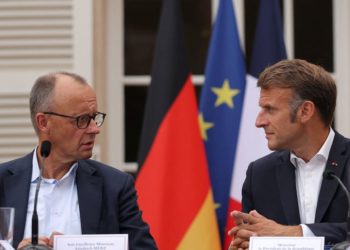Tesla asked a court on Friday to throw out a $243 million verdict by a jury that found the company’s self-driving software had contributed to a crash on a Florida road in 2019 that killed one person and severely injured another.
Lawyers for Tesla argued in a motion that the judgment was excessive and Tesla’s software was not to blame for the death of Naibel Benavides, a 22-year-old college student, and the injuries to Dillon Angulo, her boyfriend.
The verdict in a trial that ended this month was a significant blow to Tesla’s reputation at a time when the company has begun testing autonomous “robotaxis” in Austin, Texas. The carmaker plans to roll out the technology nationwide as part of a push to dominate the expanding market for driverless taxis. Some experts say the technology is unsafe.
In the motion filed Friday in the U.S. District Court in Miami, Tesla also argued that lawyers for the victims should not have been allowed to present statements during the trial by Elon Musk, the company’s chief executive. The plaintiffs’ lawyers had accused Mr. Musk of exaggerating the abilities of the company’s software, causing drivers to become complacent and inattentive.
The plaintiffs also should not have been allowed to present evidence that Tesla withheld data about the crash, the company’s lawyers said, arguing that the information was irrelevant. They asked the court to either throw out the verdict or order a new trial.
The jury in Florida had found that recklessness by the driver of the Tesla Model S sedan, George Brian McGee, was primarily responsible for the accident on a dark road near Key Largo. But the jury also found that Tesla bore 33 percent responsibility and should pay punitive damages as well as compensation to Mr. Angulo and the family of Ms. Benavides.
Mr. McGee, who settled with the victims separately, admitted that he had dropped his phone and was fumbling around for it when the car blew through a stop sign and struck Ms. Benavides and Mr. Angulo, who were standing outside their parked vehicle. Mr. McGee testified that he thought Tesla’s self-driving software would prevent a serious crash.
Tesla lawyers argued that the accident was “a tragedy that was entirely the doing of a driver who was reckless in the extreme by ignoring or overriding every safety feature in his car.”
“If the verdict is allowed to stand, it will chill innovation, harm road safety and invite future juries to punish manufacturers who bring new safety features to market,” the company’s motion said.
Jack Ewing covers the auto industry for The Times, with an emphasis on electric vehicles.
The post Tesla’s Lawyers File Motion to Throw Out $243 Million Verdict in Fatal Crash appeared first on New York Times.




